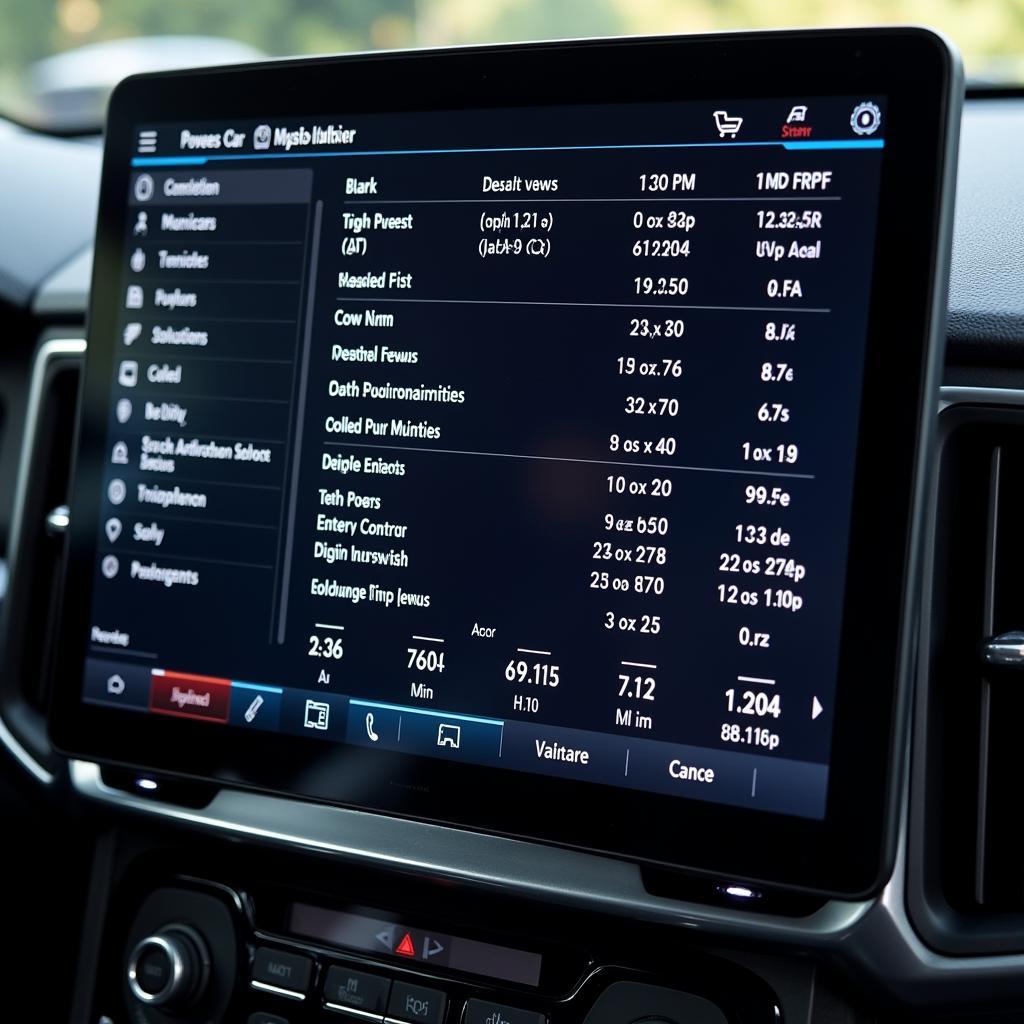Car diagnostic codes, those cryptic combinations of letters and numbers that flash on your dashboard, can be a source of both relief and anxiety. They promise to pinpoint the issue with your vehicle, yet their accuracy often comes into question. So, how much can you really trust these digital pronouncements? Let’s dive into the world of car diagnostic codes and separate fact from fiction.
Deciphering the Language of Your Car: How Diagnostic Codes Work
Modern vehicles are equipped with an onboard diagnostic system (OBD-II) that continuously monitors various systems and components. When a problem arises, the system generates a specific diagnostic trouble code (DTC) and stores it in its memory.
Think of DTCs as a doctor’s preliminary diagnosis. They flag potential issues, but just like a doctor wouldn’t prescribe medication based solely on symptoms, you shouldn’t rely solely on codes to fix your car.
The Truth About Diagnostic Codes: Not Always a Crystal Ball
While DTCs are invaluable for narrowing down the source of a problem, they aren’t foolproof. Here’s why:
- Symptoms vs. Root Cause: Codes often point to symptoms rather than the root cause. For example, a “lean fuel mixture” code might indicate a problem with the oxygen sensor, fuel pump, or even a vacuum leak.
- Intermittent Issues: Sometimes, issues are intermittent and may not trigger a code consistently, making it difficult to diagnose the problem solely based on a stored code.
- Cascading Effects: One malfunction can trigger a chain reaction, setting off multiple codes that may not directly relate to the initial problem.
“Imagine a house with a leaky pipe,” explains John Miller, senior automotive engineer at DiagFixPro. “The leak itself is the root cause, but you might first notice signs like mold or water damage. Diagnostic codes are like those signs – they alert you to a problem but might not reveal the exact source.”
Factors Influencing Diagnostic Code Reliability
Several factors influence the reliability of car diagnostic codes:
- Scanner Quality: A basic code reader might only display generic codes, while a professional-grade scanner provides more detailed information and manufacturer-specific codes. Want to know more about car diagnostic scanners? We have a comprehensive guide for you!
- Vehicle Age and Condition: Older vehicles might have wiring issues or sensor degradation that can trigger false codes.
- Mechanic Expertise: Interpreting diagnostic codes correctly requires experience and knowledge of automotive systems. A skilled mechanic uses the codes as a starting point for further investigation.
 Computer screen displaying a car diagnostic report
Computer screen displaying a car diagnostic report
Beyond the Codes: A Holistic Approach to Car Diagnostics
Effective car diagnostics involve a multi-pronged approach:
- Read the Codes: Use a reliable scanner to retrieve all stored and pending codes.
- Research the Codes: Understand what each code means and the potential causes.
- Inspect Your Vehicle: Look for visible signs of damage, leaks, or loose connections.
- Consult a Professional: If you’re unsure about the diagnosis or lack the expertise to fix the problem, seek help from a qualified mechanic.
“Think of car diagnostics as a puzzle,” Miller adds. “Diagnostic codes are just one piece. You need all the pieces – visual inspection, symptom analysis, and expert knowledge – to solve it.”
FAQs: Your Burning Questions Answered
Q1: Can I drive my car with a diagnostic code?
It depends on the code’s severity. Some codes indicate minor issues, while others signal serious problems that require immediate attention. If you notice any unusual symptoms or the check engine light is flashing, it’s best to stop driving and get your car diagnosed.
Q2: Can I clear diagnostic codes myself?
Yes, you can use a code reader to clear codes, but it’s important to address the underlying problem. Simply clearing the codes won’t make the issue disappear.
Q3: Where can I get my car diagnosed?
You can get your car diagnosed at most auto repair shops, dealerships, or even some auto parts stores. Looking for a reliable place to get a car diagnostic test? Check out our guide!
Conclusion: Navigating the World of Car Diagnostic Codes with Confidence
While car diagnostic codes are valuable tools, they shouldn’t be treated as infallible oracles. Understanding their limitations and adopting a comprehensive diagnostic approach is crucial for accurate car repair. By combining technology, knowledge, and expert assistance, you can demystify those cryptic codes and keep your car running smoothly.
Need help interpreting your car’s diagnostic codes? Reach out to our team at DiagFixPro. We’re here to help you navigate the complex world of car diagnostics and make informed decisions about your vehicle’s health. Contact us via WhatsApp at +1(641)206-8880 or email us at [email protected]. Our customer support team is available 24/7.

Leave a Reply